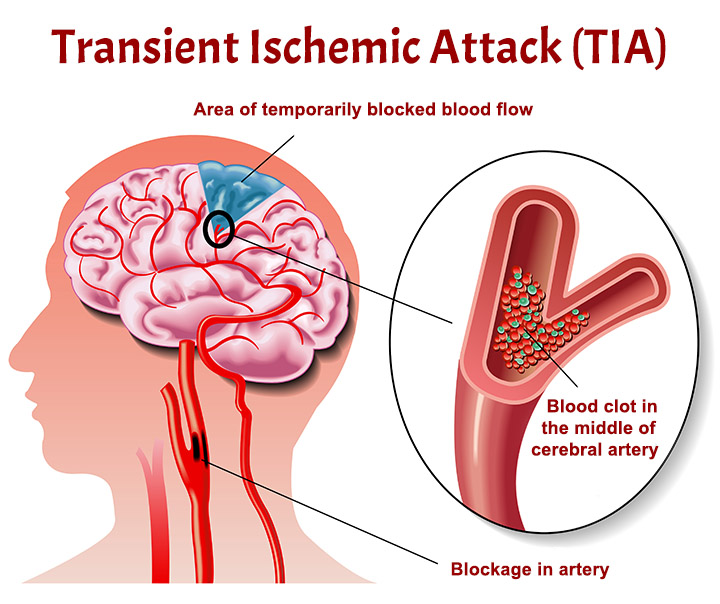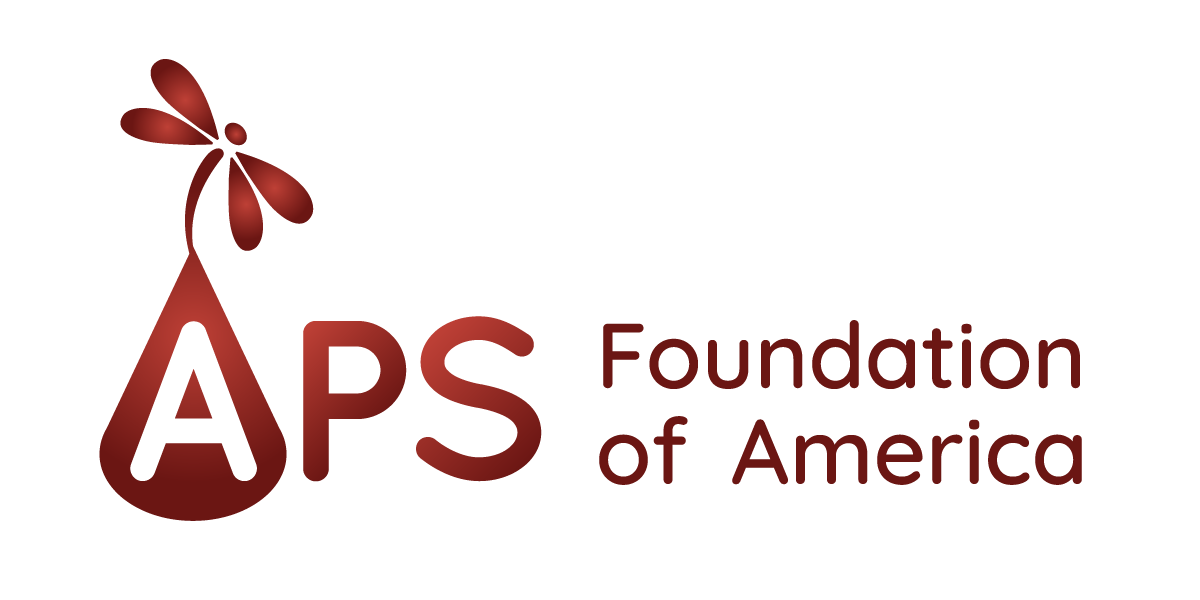Transient Ischemic Attack
A transient ischemic attack (TIA) is a transient stroke that lasts only a few minutes. It occurs when the blood supply to part of the brain is briefly interrupted. TIA symptoms, which usually occur suddenly, are similar to those of stroke but do not last as long. Most symptoms of a TIA disappear within an hour, although they may persist for up to 24 hours. Symptoms can include: numbness or weakness in the face, arm, or leg, especially on one side of the body; confusion or difficulty in talking or understanding speech; trouble seeing in one or both eyes; and difficulty with walking, dizziness, or loss of balance and coordination.

Because there is no way to tell whether symptoms are from a TIA or an acute stroke, patients should assume that all stroke-like symptoms signal an emergency and should not wait to see if they go away. A prompt evaluation (within 60 minutes) is necessary to identify the cause of the TIA and determine appropriate therapy. Depending on a patient’s medical history and the results of a medical examination, the doctor may recommend drug therapy or surgery to reduce the risk of stroke in people who have had a TIA. The use of antiplatelet agents, particularly aspirin, is a standard treatment for patients at risk for stroke. People with atrial fibrillation (irregular beating of the heart) may be prescribed anticoagulants.
TIAs are often warning signs that a person is at risk for a more serious and debilitating stroke. About one-third of those who have a TIA will have an acute stroke some time in the future. Many strokes can be prevented by heeding the warning signs of TIAs and treating underlying risk factors. The most important treatable factors linked to TIAs and stroke are high blood pressure, cigarette smoking, heart disease, carotid artery disease, diabetes, and heavy use of alcohol. Medical help is available to reduce and eliminate these factors. Lifestyle changes such as eating a balanced diet, maintaining healthy weight, exercising, and enrolling in smoking and alcohol cessation programs can also reduce these factors.
- Stroke: Hope Through Research – An informational booklet about stroke compiled by the National Institute of Neurological Disorders and Stroke (NINDS).
- Stroke Information Page – Stroke information sheet compiled by the National Institute of Neurological Disorders and Stroke (NINDS).
- Cómo Prevenir un Accidente Cerebrovascular
- Brain Basics: Preventing Stroke – Brain Basics Series: Healthy living habits can prevent stroke. Read about the risk factors and warning signs of stroke. Includes charts to score your stroke risk.
- Order NINDS Publications
Patient Organizations
American Heart Association
7272 Greenville Avenue
Dallas, TX 75231-4596
inquiries@heart.org
www.heart.org
Tel: 800-AHA-USA1 (242-8721)
214-373-6300
National Heart, Lung, and Blood Institute (NHLBI)
National Institutes of Health, DHHS
31 Center Drive, Rm. 4A21 MSC 2480
Bethesda, MD 20892-2480
www.nhlbi.nih.gov
Tel: 301-592-8573
240-629-3255 (TTY)
Recorded Info: 800-575-WELL (9355)
National Stroke Association
9707 East Easter Lane
Suite B
Centennial, CO 80112-3747
info@stroke.org
www.stroke.org
Tel: 303-649-9299
800-STROKES (787-6537)
Disclaimer:
APS Foundation of America, Inc. is not intended to replace standard doctor-patient visits, physical examination, and medical testing. Information given to members is only an opinion. All information should be confirmed with your personal doctor. Always seek the advice of a trained physician in person before seeking any new treatment regarding your medical diagnosis or condition. Any information received from APS Foundation of America, Inc is not intended to diagnose, treat, or cure. This brochure is for informational purposes only.
If you think you may have a medical emergency, call your doctor or 911 immediately.
A team of people contributed to this publication. Where to find this information: https://www.ninds.nih.gov/Disorders/All-Disorders/Transient-Ischemic-Attack-Information-Page
Prepared by:
Office of Communications and Public Liaison
National Institute of Neurological Disorders and Stroke
National Institutes of Health
Bethesda, MD 20892
NINDS health-related material is provided for information purposes only and does not necessarily represent endorsement by or an official position of the National Institute of Neurological Disorders and Stroke or any other Federal agency. Advice on the treatment or care of an individual patient should be obtained through consultation with a physician who has examined that patient or is familiar with that patient’s medical history.
All NINDS-prepared information is in the public domain and may be freely copied. Credit to the NINDS or the NIH is appreciated.
Our Mission

Founded in 2005, the APS Foundation of America, Inc. is dedicated to fostering and facilitating joint efforts in the areas of education, public awareness, research, and patient services for Antiphospholipid Syndrome (APS) in an effective and ethical manner.
Information Sheets
DISCLAIMER: APS Foundation of America, Inc. website is not intended to replace standard doctor-patient visits, physical examination, and medical testing. Information given to members is only an opinion. All information should be confirmed with your personal doctor. Always seek the advice of a trained physician in person before seeking any new treatment regarding your medical diagnosis or condition. Any information received from APS Foundation of America, Inc. website is not intended to diagnose, treat, or cure. This site is for informational purposes only. Please note that we will be listing all donor or purchaser's names on the Donor page of our foundation site. If you do not want your name listed, please contact us to opt out. If you think you may have a medical emergency, call your doctor or 911 immediately.



